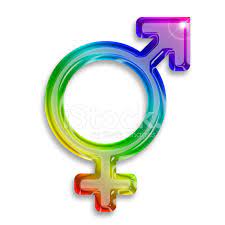Hormones play a crucial role in our overall health, particularly estrogen and progesterone, which are essential for reproductive health and many other bodily functions. When these hormone levels dip, it can lead to a range of uncomfortable symptoms and health issues. Understanding the signs of low estrogen and progesterone, as well as various treatment options, is essential for anyone experiencing these challenges. In this article, we’ll explore the symptoms, causes, lifestyle changes, and treatment options available for those dealing with low hormone levels.
Understanding Low Estrogen and Progesterone Symptoms
Low estrogen and progesterone can manifest in various ways, making it essential to recognize the symptoms. Some common signs include irregular menstrual cycles, hot flashes, mood swings, and fatigue. Women may also experience difficulty concentrating, sleep disturbances, and decreased libido. These symptoms can significantly impact quality of life, leading to frustration and a feeling of loss of control over one’s body.Voice Feminization Surgery PriceWhere To Get Estrogen PillsDoes Spironolactone Block Testosterone
In addition to the physical symptoms, emotional well-being can suffer as a result of hormonal imbalances. Anxiety, depression, and irritability are often reported by those with low estrogen and progesterone. It’s crucial to pay attention to these signs, as they may indicate an underlying hormonal issue that needs addressing.
Why Do Estrogen and Progesterone Levels Drop?
There are several reasons why estrogen and progesterone levels may decrease, and understanding these can help in treatment. One of the primary factors is age; as women approach menopause, their bodies naturally produce less of these hormones. Conditions such as polycystic ovary syndrome (PCOS), thyroid disorders, and excessive exercise can also lead to hormonal imbalances.
Additionally, lifestyle factors such as high stress levels, poor diet, and certain medications can contribute to lowered hormone production. Recognizing these factors is vital in determining the best course of action for treatment, whether it involves lifestyle adjustments or medical interventions.
Lifestyle Changes to Boost Hormone Levels Naturally
Making some simple yet impactful lifestyle adjustments can help improve hormone levels naturally. For starters, managing stress is crucial. Techniques such as mindfulness, meditation, and yoga can significantly reduce stress, which is known to negatively affect hormone production. Prioritizing sleep is also essential; cultivating a regular sleep schedule can lead to better hormonal balance.
Incorporating regular exercise into your routine can further help elevate your hormone levels. Aim for a balanced mix of cardio, strength training, and flexibility workouts, as all contribute differently to overall health. Just remember, moderation is key; over-exercising can have the opposite effect and lead to further hormonal issues.
Hormone Replacement Therapy: What You Need to Know
For some, lifestyle changes may not be enough, and hormone replacement therapy (HRT) could be an option worth considering. HRT can effectively alleviate symptoms of low estrogen and progesterone by replenishing hormone levels. Physicians typically prescribe either estrogen therapy, progesterone therapy, or a combination, depending on individual needs.
However, it’s essential to weigh the benefits against potential risks, such as blood clots and increased cancer risk, particularly with long-term use. Discussing these risks and benefits with a healthcare provider can help determine if HRT is a suitable option for you.
Natural Supplements for Low Estrogen and Progesterone
There are various natural supplements that may help boost estrogen and progesterone levels. For instance, phytoestrogens found in foods like flax seeds and soy can mimic estrogen in the body, potentially alleviating some symptoms associated with low hormone levels. Additionally, herbal supplements like black cohosh and red clover are often touted for their hormone-balancing properties.
Before diving into supplements, it’s important to consult with a healthcare professional to ensure they are safe and suitable for your individual circumstances. Some supplements may interact with medications or exacerbate existing health issues, so a tailored approach is necessary.
How Diet Affects Your Hormone Health
Diet plays a significant role in maintaining hormonal balance. Consuming a well-balanced diet rich in whole foods, healthy fats, and fiber can support hormone production and regulation. Foods high in omega-3 fatty acids, such as salmon and walnuts, are particularly beneficial, as they can help reduce inflammation and support healthy hormone levels.
Conversely, a diet high in processed sugars and unhealthy fats can lead to insulin resistance and hormonal imbalances. Focusing on foods that regulate blood sugar levels, such as leafy greens, legumes, and whole grains, can positively influence estrogen and progesterone production.
The Role of Exercise in Balancing Hormones
Exercise is an essential component of hormone health. Regular physical activity can help manage stress, maintain a healthy weight, and improve overall well-being, all of which contribute to balanced hormone levels. Aerobic exercises, such as walking, running, or cycling, can be particularly effective in boosting circulation, which aids hormone distribution throughout the body.
Strength training is also important, as building muscle can enhance metabolism and improve insulin sensitivity, further supporting hormonal balance. Aim for at least 150 minutes of moderate-intensity exercise each week, mixing in some strength training to create a well-rounded routine.
When to Seek Professional Help for Hormonal Issues
If you suspect you have low estrogen or progesterone levels, it’s essential to consult with a healthcare professional. Symptoms like severe mood swings, persistent fatigue, or changes in menstruation warrant attention and could indicate underlying hormonal imbalances. A doctor can perform tests to measure hormone levels and help determine appropriate treatment options.
Don’t hesitate to seek help, even if your symptoms seem mild. Early intervention can make a significant difference in managing symptoms and improving quality of life. Remember, hormonal health is a vital part of overall well-being, and professional guidance can be invaluable on this journey.
Navigating the challenges of low estrogen and progesterone can be daunting, but you’re not alone. By understanding the symptoms, causes, and treatment options, you can take proactive steps to regain hormonal balance and improve your overall health. Whether through lifestyle changes, natural supplements, or medical interventions, there are plenty of paths to explore. Always consult with a healthcare provider to tailor a plan that works best for you, and remember that taking charge of your hormonal health is a journey worth embarking on!


